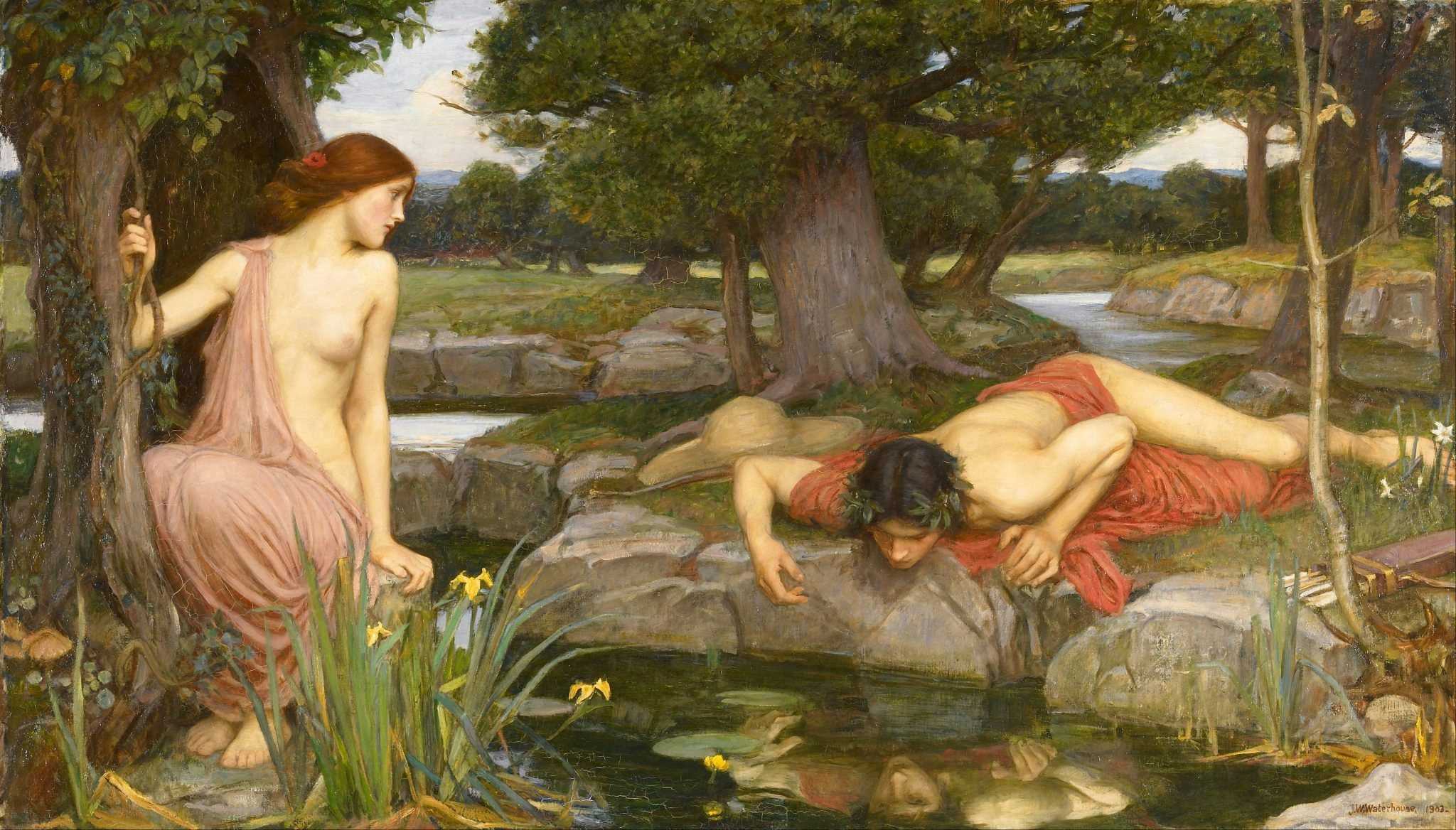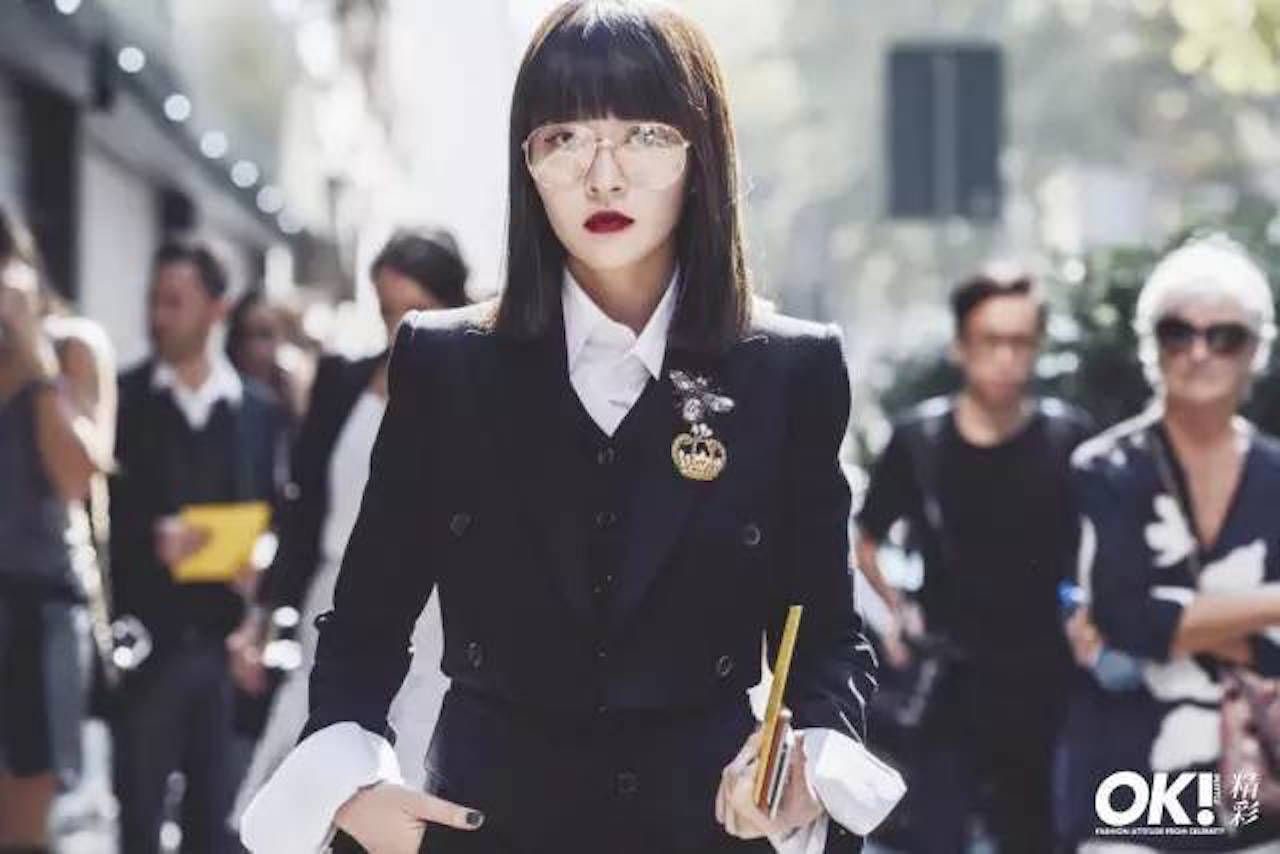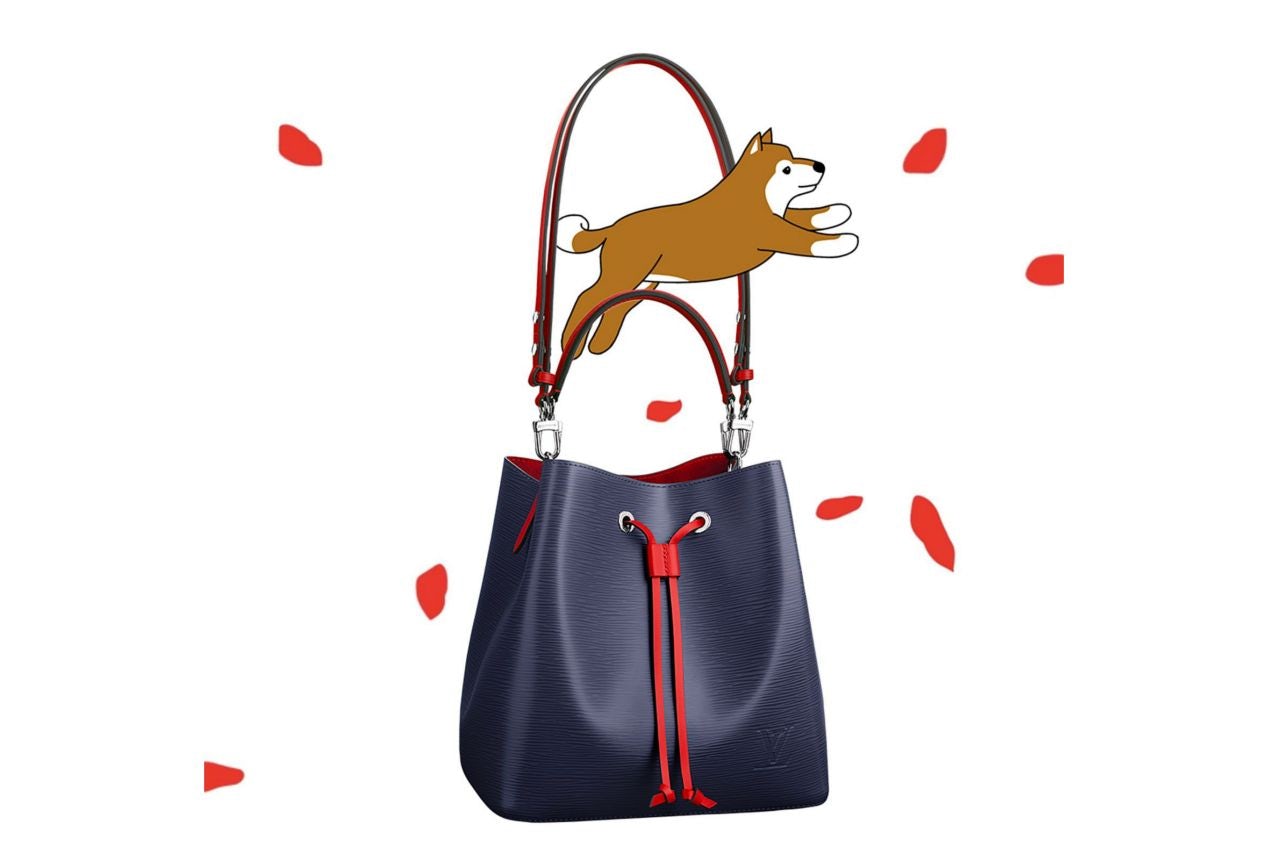Meitu Inc is a phenomenon. The company’s beauty apps have made their way onto 1.5 billion devices globally, with over 480 million monthly active users (MAUs). That’s not so far behind Instagram, which reached 800 million MAUs in September last year, despite the fact that Meitu’s apps — which include the eponymous Meitu, MakeupPlus, BeautyCam, and Airbrush, among others — are almost all dedicated to just one kind of image: the selfie. Selfies feature even more prominently on Chinese social media than they do on English language platforms, and more than half of them are thought to be edited with Meitu’s apps.
Luxury brands have been eager to connect with selfie-takers, something that almost passes, in an authoritarian state, for a lifestyle. Earlier this year, Meitu collaborated with Gucci to launch seven augmented reality (AR) filters. And in the lead up to Valentine’s Day, Dior launched a branded user interface called “Miss Dior” on BeautyCam, where a pink perfume bottle icon replaced the instant camera button.
According to Meitu COO Bryan Cheng, "The new UI drove a surge of exposure to an audience of nearly 250 million, and gained about 2.5 million clicks in just the first two days.”
Beauty brands are especially keen to work with Meitu, with their apps' AR functions allowing users to, for instance, try out different digital shades of lipstick before purchasing them in real life.
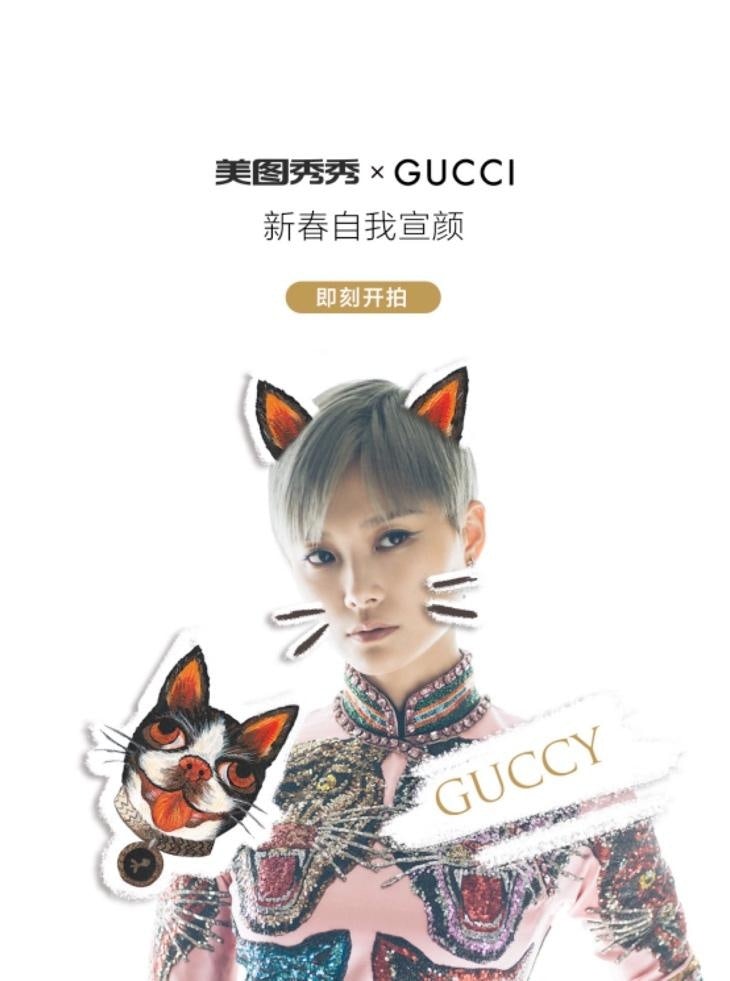
“So far, Meitu has already cooperated with more than 100 top makeup brands such as L’oréal Paris, Guerlain, Lancôme, Maybelline New York, Clinique, Estée Lauder, and Shiseido, to name a few," Cheng told us. "These brands have helped people to try more than 2,000 makeup products on MakeupPlus.”
“As women are more educated and exposed to new methods and products, they will of course be interested to use the products not only virtually, but in real life,” Meitu said.
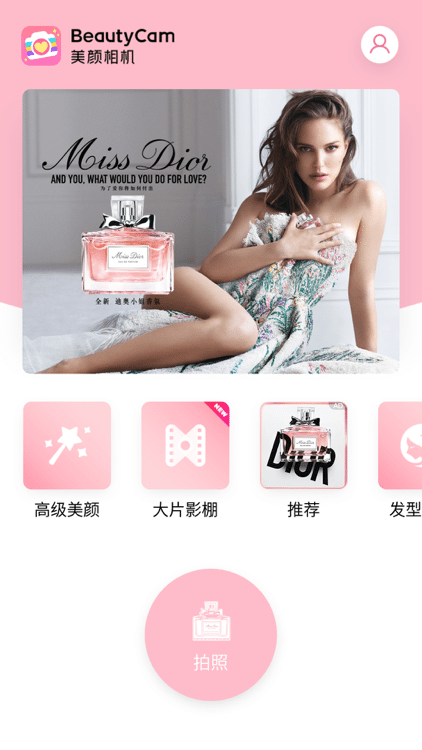
Apps like Meitu and Airbrush allow users to change every aspect of their appearance. There are filters for making the skin paler, faces and noses narrower, eyes larger, legs longer, and skin smoother. These can be used individually or in concert.
According to Cheng, “Every user has their own ways and habits of using photo enhancement and beautification apps. In the past, people tended to use the filters for paler skin. Now however, users have also become fond of more natural and artistic looks, just like in scenes from movies or modern paintings.”
Meitu has also launched a function called ArtBot Andy that uses AI to create images resembling paintings, and their apps include film and vintage filters. But the most prominent of Meitu's functions are still devoted to beautification.
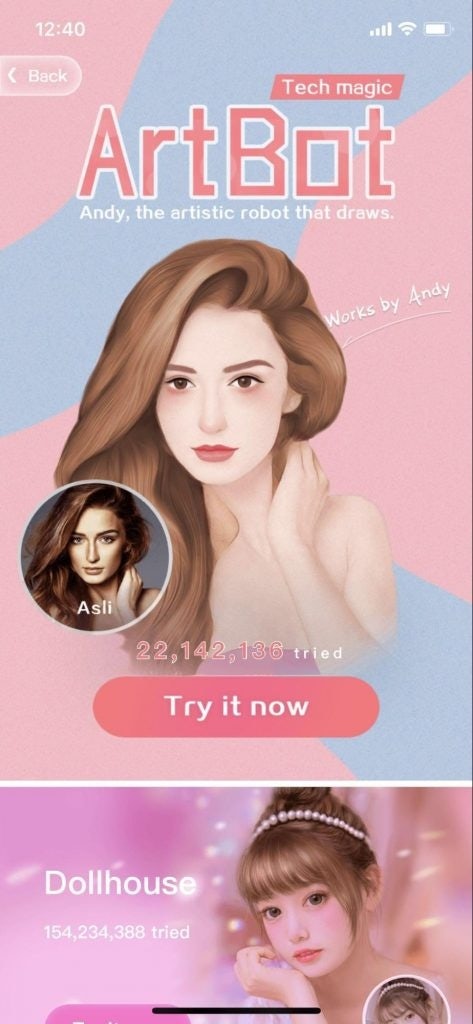
In her New Yorker article, “China’s Selfie Obsession”, Jiayang Fan made the case that China is an increasingly superficial, narcissistic society. Women are looking not just to digital photo manipulation but also plastic surgery and spending more than they can afford on makeup and skincare as a kind of "self-investment" to help them find better husbands and get ahead in their careers.
On the download screen for the Airbrush app, badges say, “sculpt yo’self” and “add a few inches”.
A kind of dysmorphia seems to be emerging, Fan suggests, between what people see in the mirror and what they see on their smart phones. The article poses a tough question: what responsibility do brands and apps have to encourage a healthy psychological attitude to beauty?
Meitu Inc told us that, “In terms of the New Yorker article mentioned, we don’t really agree with its comments and conclusion about how Chinese people are superficial or narcissistic. On the contrary, the want to become more beautiful is natural. We encourage our users to have fun with the apps, and in China, many of the users like to change their appearance with all of the AR functions we offer.”
“Meitu is dedicated to its mission of inspiring everyone to express their beauty by their own definition. We hold no judgments about our users, as negativity is not something we wish to impart on them.”
Although their apps' automatic beautification algorithms have an obvious idea about what makes someone beautiful, the apps can be used to express other kinds of beauty, making skin darker, eyes narrower, and faces fuller. The only kind of beauty that's inherently at odds with the apps is natural and unedited.
In her article, Fan says on average people she spoke to in China used Meitu for about 40 minutes per face. Meitu didn’t disagree with that understanding of how people use the app, and nor did they see it as an extraordinary amount of time to spend doctoring a selfie.
“From our perspective, our apps and platforms are tools for users to find their beauty, and have fun doing it. As for the time spent on our apps, if our users enjoy the experience, of course they will spend more time on them.
“In fact, the ways of boldly expressing people’s beauty and becoming more beautiful in the virtual world has already exerted a subtle influence on people’s real-world lives. We are delighted to notice that many users tend to dress more fashionably and wear makeup daily.”
Meitu says 78 percent of its users are women, and most are aged 19-35 years old. With International Woman’s Day approaching, that young women are dressing more fashionably and wearing makeup daily seems — at the risk of glam-shaming — seems an equivocal achievement.
However uncomfortable it may make some, Meitu is here to stay. The company began rolling out its apps internationally in 2016, and already they've seen tremendous growth in markets such as Japan, Korea, the United States, Brazil, India, and Southeast Asia. Part of that strategy has involved engaging beauty influencers such as makeup artist Lisa Eldridge, Youtuber Nikkie from Nikkie Tutorials, and Korean beauty influencer Pony.
According to Fox Lui, Head of International business at Meitu, "Now there are 11 countries that each have more than 10 million Meitu users."
Meitu's Global Senior Partnership Manager, Jade Zhou, will be speaking about beauty and innovation at China Connect Paris March 7-8.
